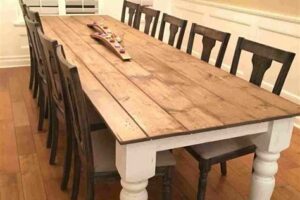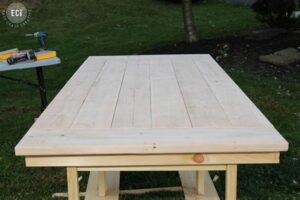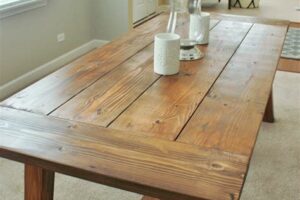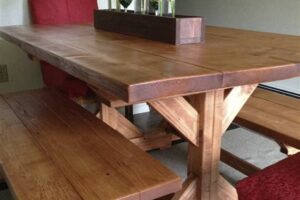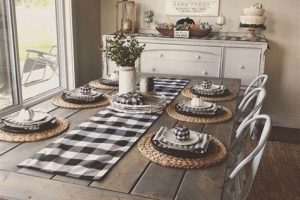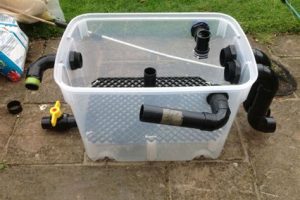Table of Contents
Discover a world of creativity with DIY farm welding projects! From building sturdy fences and gates to constructing durable animal shelters, our step-by-step guides will help you bring your ideas to life. Whether you’re a seasoned welder or just starting out, get inspired and learn new techniques to enhance your farm’s functionality and aesthetics. Start your next project today!
Are you a farmer looking to save money and improve the efficiency of your farm? Look no further than DIY farm welding projects. With just a few basic tools and materials, you can enhance your equipment, create customized solutions, and tackle repairs with ease. Whether you need to build sturdy fences, construct livestock shelters, or repair machinery, welding skills can be a game-changer for any farmer. In this article, we will explore some exciting DIY farm welding projects that will not only help you save money but also ensure your farm operates smoothly and efficiently. So, grab your welding helmet and let’s get started!
Introduction
Welding is a valuable skill for any farmer or homesteader to possess. Being able to fabricate and repair equipment on your own can save you both time and money. In this article, we will explore some exciting DIY farm welding projects that you can undertake to enhance your farming operations. These projects are not only practical but also customizable to suit your specific needs.
The Benefits of Farm Welding
Welding is a versatile skill that offers numerous benefits to farmers and homesteaders. Some advantages of farm welding include:
- Cost savings: By being able to repair and create your own equipment, you can save money on hiring professionals or buying new machinery.
- Customization: DIY welding projects allow you to tailor equipment to fit your unique needs and preferences.
- Increased productivity: By having the ability to fix broken equipment promptly, you can minimize downtime and increase overall productivity on your farm.
- Self-sufficiency: Farm welding empowers you to become more self-reliant by providing the skills to handle various repairs and modifications on your own.
A DIY Welded Cattle Panel Gate
Cattle panel gates are an essential component of any farm. Building your own gate using welded cattle panels allows for customization and ensures durability. The materials required for this project include:
- Cattle panels
- Steel posts
- Welding machine
- Angle grinder
- Welding helmet
By following a simple design and welding the panels to the steel posts, you can create a sturdy gate that will withstand the test of time.
Building a Welded Cattle Panel Fence
In addition to gates, welded cattle panels can also be used to construct fences. These fences are ideal for enclosing livestock or creating designated areas on your farm. The materials needed for a welded cattle panel fence include:
- Cattle panels
- Steel posts
- Wire
- Welding machine
- Wire cutters
By welding the panels to the steel posts and attaching wire securely, you can create a robust and reliable fence to meet your specific needs.
Constructing a Welded Hay Feeder
A welded hay feeder is an excellent addition to any farm, providing a convenient and efficient way to feed your livestock. To build a welded hay feeder, you will need:
- Steel tubing
- Welding machine
- Circular saw
- Measuring tape
- Welding gloves
By cutting and welding the steel tubing into a sturdy frame, you can create a hay feeder that will keep feed off the ground and minimize waste.
Building a Welded Tool Rack
A well-organized tool rack is essential for any farm workshop. By constructing a welded tool rack, you can keep your tools easily accessible and prevent clutter. Materials required for this project include:
- Steel pipes
- Welding machine
- Angle grinder
- Paint or primer
- Mounting hardware
By welding the steel pipes together and mounting the rack securely on a wall, you can create a functional and visually appealing storage solution for your tools.
Constructing a Welded Fire Pit
A welded fire pit is a great addition to any farm for outdoor gatherings and relaxation. To build a welded fire pit, you will need:
- Steel sheet
- Welding machine
- Angle grinder
- Fire-resistant bricks
- Firewood
By cutting and welding the steel sheet into a circular shape and attaching fire-resistant bricks as a protective lining, you can create a durable and safe fire pit for your farm.
Building a Welded Metal Planter
A welded metal planter adds beauty and functionality to any farm or garden. To create a welded metal planter, you will need:
- Sheet metal or steel plate
- Welding machine
- Angle grinder
- Drill
- Paint or primer
By cutting and welding the sheet metal or steel plate into the desired shape and size, you can create a unique planter to display your favorite plants or flowers.
Installing a Welded Farm Gate Latch
A secure gate latch is crucial for maintaining the safety and security of your farm. By installing a welded farm gate latch, you can ensure that your gates stay closed and animals remain contained. Materials needed for this project include:
- Steel bar
- Welding machine
- Angle grinder
- Measuring tape
- Mounting hardware
By welding the steel bar into a latch mechanism and mounting it securely on your gate, you can have peace of mind knowing that your farm is protected.
Conclusion
Learning how to weld opens up a world of possibilities for DIY farm projects. By honing your welding skills, you can create custom equipment, repair broken machinery, and enhance the overall efficiency of your farm. Remember to prioritize safety while undertaking any welding projects and enjoy the satisfaction of completing useful and practical additions to your farming operations.
DIY Farm Welding Projects: Enhancing Your Farm with Sturdy and Functional Creations
When it comes to maintaining a farm, having sturdy and functional equipment is essential. One way to achieve this is by utilizing your welding skills to create DIY farm projects that can enhance the security, productivity, and overall functionality of your agricultural operations. From constructing robust gates and fences to designing customized signage, there are countless opportunities to put your welding techniques to use on the farm.
1. Sturdy Farm Gates: Enhancing Security and Functionality
One of the primary concerns for any farm owner is ensuring the safety and security of their livestock and property. By constructing sturdy farm gates using welding techniques, you can enhance both the security and functionality of your farm. Utilize well-built hinges to secure the gate’s frame, creating a portal that will withstand the test of time while providing easy access. With these gates, you can keep your livestock safe from potential threats and have peace of mind knowing that your farm is well-protected.
2. Reinforced Livestock Panels: Ensuring Safety and Organization
Protecting your animals and enclosing specific areas on your farm is crucial for maintaining a neat and organized environment. Welded steel wire can be used to create reinforced livestock panels that can be utilized to build animal pens or secure grazing areas. These panels not only ensure the safety of your livestock but also offer a durable solution that can withstand the demands of farm life. By incorporating these panels into your farm, you can effectively manage your livestock and maintain a well-organized and efficient operation.
3. Customized Hay Feeders: Efficient Feeding Solutions
Feeding your animals efficiently is essential for their overall health and well-being. By utilizing your welding skills, you can design and build custom hay feeders with durable metal frames. These feeders will ensure that your livestock can access their feed without injury or wastage, providing a cost-effective solution for feeding your animals. With customized hay feeders, you can reduce feed losses and optimize the feeding process, ultimately saving both time and resources.
4. Heavy-Duty Farm Carts: Enhancing Productivity and Reducing Labor
The demanding conditions of the agricultural environment require equipment that can withstand heavy loads and rough terrain. Welding skills can be put to use in creating heavy-duty farm carts that are specifically designed for the challenges of farm life. These carts are ideal for transporting tools, feed, or other heavy objects around the farm, enhancing productivity and reducing the strain on manual labor. By constructing these carts with durability in mind, you can increase efficiency and optimize your farming operations.
5. Robust Fencing: Protecting Livestock and Crops
For any farmer, maintaining secure boundaries is crucial for protecting livestock and crops from potential threats. Welding techniques enable you to build robust fences using steel posts and wire mesh, providing solid and secure boundaries for your farm. These fences effectively keep unwanted animals out and ensure the safety of your livestock and crops. With robust fencing, you can create a safe and protected environment for your farm, allowing you to focus on the growth and success of your agricultural endeavors.
6. Customized Farm Signage: Showcasing Pride and Uniqueness
Every farm has its own unique identity, and showcasing this pride and uniqueness can be achieved through customized farm signage. By designing and welding personalized signs using metal cutouts, you can depict your farm’s name, logo, or any other message you want to convey. These handcrafted signs offer a visually appealing and professional touch to your property, making a lasting impression on visitors and reflecting the dedication and care you put into your farm.
7. Versatile Farm Implements: Repairing and Modifying Essential Equipment
Repairing or modifying essential farm implements such as plows, harrows, or cultivators can be easily accomplished with welding techniques. By welding and reinforcing various parts, you can extend the life of your equipment and tailor it to suit your specific farming needs. This not only saves you money on replacements but also allows you to optimize the performance and efficiency of your machinery. With your welding skills, you can ensure that your farm implements are in top condition, enhancing your overall productivity and reducing downtime.
8. Sturdy Farm Equipment Stands: Ensuring Stability and Preventing Damage
Storing and maintaining heavy farm equipment such as tractors requires stable and durable stands. By constructing these stands using welded metal frames, you can ensure the stability of your equipment and prevent unnecessary damage. These stands provide support for heavy machinery, allowing you to store and maintain them with ease. With sturdy farm equipment stands, you can protect your valuable investments and extend their lifespan, ultimately saving you time and money.
When undertaking any welding project, it is crucial to prioritize safety. Ensure that you have proper safety equipment and follow all necessary safety guidelines. If you are new to welding or uncertain about specific techniques, seeking professional guidance or attending a welding course can enhance your skills and knowledge.
By utilizing your welding skills on the farm, you can enhance the security, functionality, and overall efficiency of your agricultural operations. From constructing sturdy gates and fences to designing customized signage, the possibilities for DIY farm welding projects are endless. Embrace your creativity and craftsmanship to create durable and practical solutions that will benefit your farm for years to come.
As a professional in the agricultural industry, I understand the value and importance of using high-quality equipment and machinery on the farm. When it comes to welding projects, it is crucial to prioritize safety, durability, and efficiency. While do-it-yourself (DIY) farm welding projects may seem appealing, they often fall short in meeting these essential criteria.
Here are some key points to consider when it comes to DIY farm welding projects:
- Safety concerns: Welding involves working with high temperatures, sparks, and potentially hazardous materials. Professional welders are trained to follow strict safety protocols to protect themselves and the surrounding environment. Engaging in DIY welding projects without proper training and experience can lead to accidents, injuries, or even fires. It is always recommended to hire a professional welder who understands the safety precautions necessary for farm welding projects.
- Lack of expertise: Professional welders go through extensive training and have years of experience in their field. They possess the knowledge and skills required to identify the right welding techniques, materials, and equipment for specific farm applications. DIY enthusiasts may lack the expertise needed to ensure the longevity and effectiveness of the welded components, potentially leading to costly repairs or replacements down the line.
- Durability and reliability: Farm equipment and machinery are subjected to harsh weather conditions, heavy loads, and constant use. Welded components need to be strong, durable, and able to withstand these demanding conditions. Professional welders have access to high-quality materials and advanced welding techniques that ensure the longevity and reliability of the welded structures. DIY projects, on the other hand, may rely on subpar materials or incorrect welding methods, compromising the integrity and longevity of the finished product.
- Efficiency and productivity: Time is of the essence in farming, and any equipment downtime can result in significant losses. Professional welders understand the importance of completing projects efficiently and effectively, minimizing disruptions to farm operations. They have access to specialized tools and equipment that enhance productivity and ensure accurate and precise welding. DIY projects often lack the necessary resources and may result in delays or suboptimal results, impacting overall farm efficiency.
- Long-term cost savings: While DIY projects may initially seem more cost-effective, they can end up costing more in the long run. Poorly executed welding jobs may require frequent repairs or replacements, leading to additional expenses. Additionally, professional welders can offer valuable advice on equipment maintenance and optimization, helping farmers achieve long-term cost savings by avoiding unnecessary breakdowns or inefficiencies.
In conclusion, when it comes to farm welding projects, it is essential to prioritize safety, durability, efficiency, and long-term cost savings. Hiring a professional welder ensures that these criteria are met, providing farmers with reliable and high-quality welded structures that can withstand the demands of agricultural operations. Investing in professional welding services is a prudent choice that guarantees the best results for farm equipment and machinery.
Thank you for visiting our blog and taking the time to explore the world of DIY farm welding projects. We hope that you have found the information and ideas presented here to be both informative and inspiring. Whether you are a seasoned welder or just starting out, there is something for everyone in the realm of farm welding projects.
As we wrap up this blog post, we would like to emphasize the importance of safety when undertaking any welding project. Welding can be a rewarding and fulfilling hobby, but it also comes with its own set of risks. Always remember to wear the appropriate protective gear, such as gloves, goggles, and a welding helmet, to protect yourself from sparks and harmful fumes. Additionally, make sure to work in a well-ventilated area to minimize the inhalation of any toxic gases.
Now that we have covered the safety aspect, let’s delve into the exciting world of DIY farm welding projects. From building sturdy livestock gates to crafting custom feeders and hay racks, there are endless opportunities to showcase your welding skills while enhancing the functionality of your farm. The versatility of welding allows you to create durable structures that can withstand the elements and provide long-lasting solutions for your farming needs.
In conclusion, we hope that this blog post has sparked your interest in exploring the world of DIY farm welding projects. Remember to always prioritize safety and take necessary precautions before embarking on any welding endeavor. Whether you are looking to enhance the efficiency of your farm or simply enjoy the art of welding, there is no limit to what you can achieve. So grab your welding machine and get ready to put your skills to the test – the possibilities are endless!
Video Diy Farm Welding Projects
Here are some common questions that people also ask about DIY farm welding projects:
What are some popular DIY farm welding projects?
What type of welding is best for farm projects?
What safety precautions should I take when doing farm welding projects?
Are there any online resources available for DIY farm welding projects?
Do I need previous welding experience to undertake DIY farm welding projects?
Some popular DIY farm welding projects include building fences, gates, livestock shelters, chicken coops, feeders, and equipment repairs.
The type of welding that is best for farm projects depends on the specific requirements of the project. However, MIG (Metal Inert Gas) welding is often a preferred choice as it provides versatility, speed, and ease of use. Stick welding (SMAW – Shielded Metal Arc Welding) can also be suitable for heavier applications and outdoor projects where wind and weather conditions might affect the welding process.
When engaging in farm welding projects, it is essential to prioritize safety. Some important safety precautions include wearing appropriate protective gear such as welding helmets, gloves, and clothing, working in a well-ventilated area or using respiratory protection, ensuring proper grounding of equipment, and having a fire extinguisher nearby. It is also crucial to follow the manufacturer’s guidelines for the specific welding equipment being used.
Yes, there are numerous online resources available for DIY farm welding projects. Websites, forums, and video tutorials offer step-by-step instructions, project ideas, and tips from experienced welders. Additionally, some welding equipment manufacturers provide guides and resources specifically tailored to farm welding projects.
While previous welding experience can be beneficial, it is not always necessary for simple DIY farm welding projects. However, beginners should familiarize themselves with basic welding techniques, safety procedures, and seek guidance from experienced welders or tutorials before starting more complex projects.
Remember, when embarking on any DIY farm welding project, ensure you have the necessary skills, safety knowledge, and appropriate equipment to complete the task safely and effectively.

